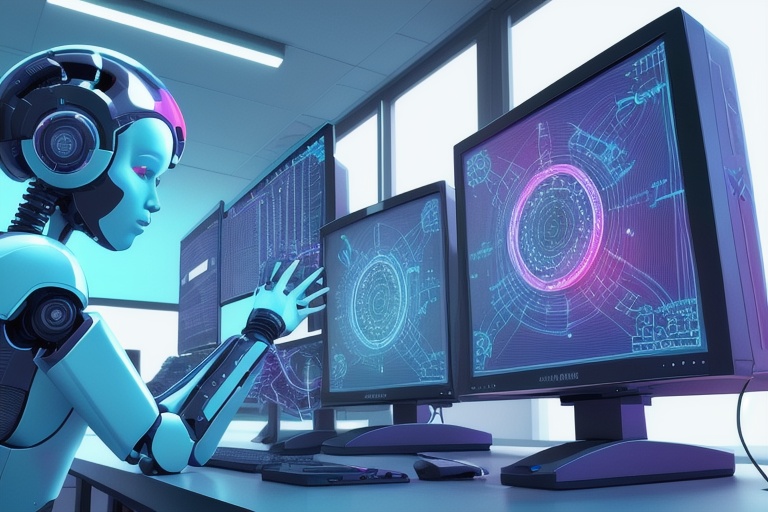Artificial intelligence (AI) and machine learning are two buzzwords that have been capturing the attention of tech enthusiasts and industry leaders alike. Often used interchangeably, these terms, in fact, have distinct meanings. Artificial intelligence encompasses the broader capability of computers to mimic human intelligence and to perform an array of tasks in complex, real-world environments. On the other hand, machine learning is a specific subset of AI that involves the development of algorithms and statistical models that enable computers to learn from and make decisions based on data. In essence, it allows systems to recognize patterns and improve over time with minimal human intervention.
Artificial intelligence (AI) and machine learning are two buzzwords that have been capturing the attention of tech enthusiasts and industry leaders alike. Often used interchangeably, these terms, in fact, have distinct meanings. Artificial intelligence encompasses the broader capability of computers to mimic human intelligence and to perform an array of tasks in complex, real-world environments. On the other hand, machine learning is a specific subset of AI that involves the development of algorithms and statistical models that enable computers to learn from and make decisions based on data. In essence, it allows systems to recognize patterns and improve over time with minimal human intervention.
Software engineers and developers are at the forefront of AI innovation. By utilizing an arsenal of technologies, including machine learning, deep learning, neural networks, computer vision, and natural language processing, they are crafting intelligent systems that are transforming the way we live and work. Let's delve deeper into the nuances between AI and machine learning and examine their applications in various industries that are revolutionizing organizational operations.
Unleashing the Power of AI and Machine Learning
The burgeoning fields of AI and machine learning are unlocking unprecedented avenues for businesses to harness data and analytics. Companies are now poised to outpace competitors, expedite decision-making processes, and heighten the efficiency of their operations. The ripple effect of these technologies is noticeable across a swath of sectors—spanning manufacturing to finance, and extending to healthcare.
Revolutionizing Manufacturing: In the manufacturing realm, AI is a game-changer. It streamlines business workflows, automates complex processes, and refines energy usage. By leveraging AI, manufacturers can enjoy reduced operational costs and enhanced production quality, fostering an environment that supports continuous improvement and innovation.
Transforming Banking and Finance: The banking sector witnesses AI's impact in safeguarding assets and refining customer experiences. AI-driven tools are pivotal in identifying fraudulent activities and impeding them before they affect businesses and clients. Moreover, these advanced technologies are empowering financial institutions with the means to offer more personalized and efficient customer service, truly revolutionizing the banking experience.
Advancing Healthcare: Perhaps nowhere is the potential of AI and machine learning more vivid than in healthcare. From diagnostic precision to optimized treatment plans, AI applications are instrumental in improving patient outcomes. Machine learning algorithms can sift through vast datasets, uncovering insights that save physicians time and streamline patient care.
By grasping the intricacies that distinguish AI from machine learning, organizations can adeptly adapt these technologies to automate tasks, make informed decisions based on data, and boost overall productivity. As we continue to witness the evolution of these technologies, it is increasingly clear that they will redefine the capabilities of computers and shape the future of numerous professions.
Continuing Education in AI
For those interested in taking an active role in the digital transformation, continuous learning is indispensable. Executive certificate programs cater to working professionals seeking to expand their knowledge and skill sets in AI. Take, for example, Columbia University's Artificial Intelligence executive certificate program. This program delves into algorithms, machine learning techniques, data governance, and a variety of other critical AI topics. It is designed to arm participants with the expertise required to lead and innovate in the diverse landscape of AI, while also accommodating their busy schedules, allowing for both personal and professional advancement.
In today's fast-paced, data-centric world, the adoption of AI and machine learning is no longer a luxury but a necessity for staying ahead of the curve. As such, businesses and individuals alike must be proactive in understanding and leveraging these transformative technologies to their full potential.
Information for this article was gathered from the following source.




